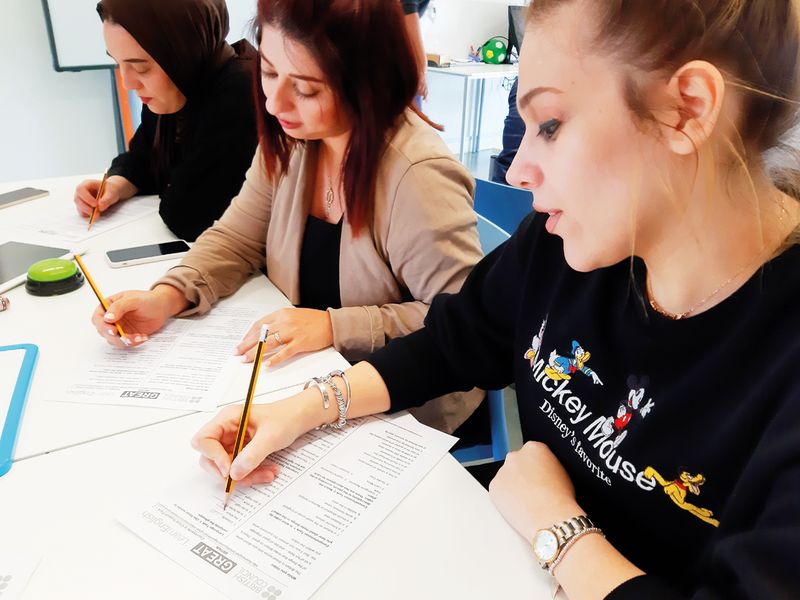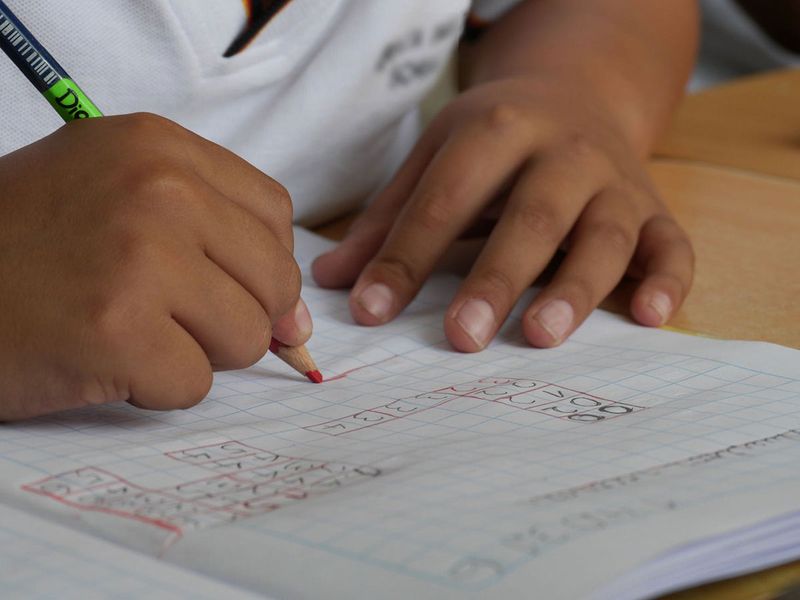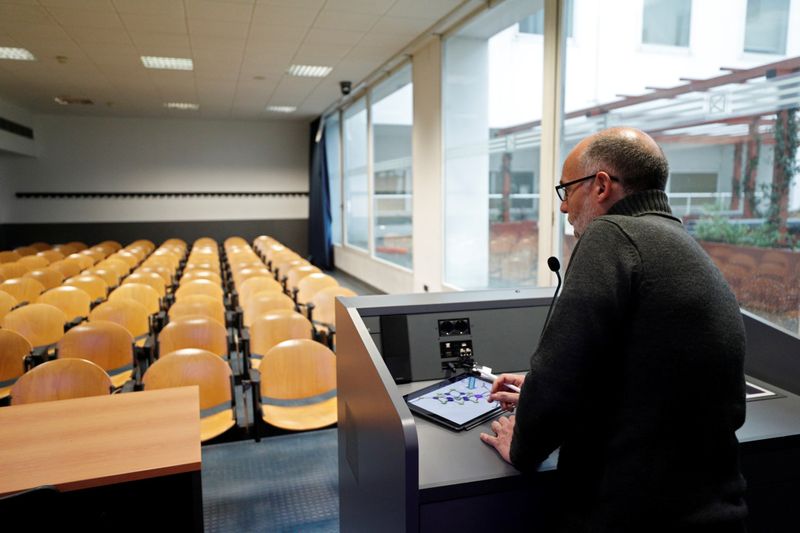
The coronavirus, or COVID-19, has caused devastating ripple effects and significant disruptions to industries worldwide.
With respect to the extent of this impact on foreign education, it’s a fact that study plans of prospective international students were disrupted as a result of the global health emergency.
It’s a fact that study plans of prospective international students were disrupted as a result of the global health emergency.
You may one of those people who are worried that you will not be able to study abroad this year.
So, this article walks through whether foreign studies are still worth it, given the risks associated with it when a pandemic strikes and countries lock down their borders.
You may just have to rethink your plans for the next few months.
Institutions optimistic of a return to normalcy
While it’s inevitable that students’ attitudes to studying abroad will shift as this situation escalates, it’s crucial that universities focus on how they can help support students during this difficult time.
And the answer is yes, institutions have increasingly been taking initiatives too.
Concerns about whether you need to change your study plans are understandable, but you would want to keep a look out for what universities and business schools are doing about university admissions.
You would want to still keep a look out for what universities and business schools are doing about university admissions.
Will Covid-19 affect your university application? While the full extent of the Covid-19 pandemic remains uncertain, many leading universities have reassured students that they are continuing to accept applications for degree programs starting later this year.
This is obviously according to the widely accepted forecast that the pandemic will ease out completely at least by July, when economies will resume normalcy in operations.
READ ALSO
- Investment guide: Which stocks and sectors gained the most in the first 100 days of COVID-19 - and which had the most to lose?
- UAE: Time to write a will to protect your financial investments. Nominations don't work!
- UAE expat problems: Finding a retirement plan before settling down!
- UAE can be one of the several migration options if you're seeking tax residency through investment!

Physically studying abroad only tough for a while
But if enrolling for a degree is something you are aiming for in the next few months, an option to study abroad in-person may not be immediately possible.
Most universities in the UK are planning to delay entry of new students until January next year, with online teaching offered.
The number of universities cancelling teaching and exams has grown in Australia off late and a lot of universities in different parts of Europe have cancelled face-to-face lectures and/or end the term early.
24 US states have now announced school and university closures in an attempt to limit the spread of the virus, but most of them have availed the option to resume studies online.
But there is always the option for you to study online – that is, if you are up for it.
The choice has grown to be an increasingly popular temporary fix, particularly the last few months.
Universities and business schools around the world have turned to online learning as a way to temporarily continue educating students during the coronavirus outbreak. Around the world, cities have been put on lockdown and mass gatherings have been banned, making in-person classes impossible.
While this is an unprecedented situation, there are encouraging signs that online education isn’t putting students off from applying to university. Only 39 percent of international students were completely opposed to the idea, according to the survey, while the rest were supportive of it.
Coping with the crisis at hand – financially and otherwise
So, here are some ways you can adapt to this crisis, while also not giving up on your dream of studying abroad:
• Stick to your original study career plan
If you’ve decided to study this year, that means you’ve already started your application process. Agreed that this pandemic comes at the worst possible time. But the academic year start of 2020 might not be lost just yet.
Agreed that this pandemic comes at the worst possible time, but the academic year start of 2020 might not be lost just yet.
As of now it is estimated that between May and July, the virus will peak worldwide and cases will decline in a minimum.
This should get all facets of society returning to normal – and this includes being able to physically attend courses.

Most university classes around the world usually start in September-October and some universities are still accepting online applications from students at this time.
And also most of those have late application deadline dates that goes well into August – so, you might want to keep an eye out for those.
Universities are just as affected by the situation as are students, and they will adjust the application and enrolment deadlines to fit the changes in the academic year schedule.
If the crisis situation continues further than July (which is possible), universities will adapt to these changing conditions.
So, if you can, continue going through steps of the application process. Continue to monitor the situation and keep in contact with your universities for more information.
As you would know, most universities have online application platforms, so you will not have to travel to the university to apply.
Or maybe you want to tweak the first-pick of your study terminus because it’s one of the countries most affected by the virus.
By not starting this year it does not mean you can’t already start researching your future study options and decide by January 2021, when the new applications start.
Meanwhile, after the quarantine ends that is, you can gather some professional experience by volunteering, getting a short-term job, or starting an internship.
It is a well-established reality that universities appreciate a rich resume.
Also, there are still ways for you to prepare for your language test and also taking it. IELTS, PTE and TOEFL are the most popular and widely available English language tests.

Yes, in some countries, the language test centers have temporarily paused testing activity in response to government and health authority guidance. However, in most others they are still able to continue while using appropriate health and safety protocols.
There are still ways for you to prepare for your language test and also taking it!
All universities have language requirements for their programs, and you can prove your English skills – even if you postpone you’ll still have the certificate valid for next year.
You can also take the lull period to prepare or register for the GRE or GMAT tests, which are available online and can be taken from the comfort of your home.
Make good use of your time staying at home by doing your research thoroughly, comparing your options and figuring out where you’re going to apply next year.

• Why not get an online degree?
Like the survey that was briefly touched upon earlier, many prospective international students are considering changing their study plans altogether, and they’re looking at online study options offered by prestigious universities all over the world.
Many universities have started offering more online degrees as a result of the outbreak. This option will likely not delay your study plans too much, as many online degrees have rolling admissions, meaning you can apply anytime.
Many prospective international students are considering changing their study plans altogether, and they’re looking at online study options
The downside maybe that your online degree might take more years to complete compared to on-campus options, depending on the course intensity. But remember, online studies doesn’t always imply low-quality education.
Coping with sudden COVID-induced cash flow crunch
One important factor that will help make your decision of studying aboard going forward has always been understanding whether you have any money to lose when such a crisis as coronavirus hits.
Looking at the financial side of things, let’s understanding what do you stand to lose if things go south, like the current case in point.
Students who were studying abroad when COVID-19 became rampant in most countries, lost money with trips being cancelled or cut short, and months of international educational exposure, for which one cannot put a price on.
Sometimes when a student has to buy a plane ticket at short notice it's going to be very expensive.

Some refunds came though, some still haven’t
When it comes to money lost for not physically attending college, only a few colleges have refunded students.
A lot of colleges or universities haven’t yet been clear as to how they will go about a reimbursement, now that students have returned home and not studying abroad as a result of the crisis.
When it comes to money lost for not physically attending college, only a few colleges have refunded students.
But considering it is still quite early, what most of these institutions say so far is that they are working to find a solution as the refund process in general is likely to be complex as schools evaluate situations on a case-by-case basis.
One will have to wait and see whether they get an amicable settlement.
Although with ambitions to study abroad one would have hoped to see the world as accessible, but the coronavirus pandemic has proven costly to that effect.
Also, have conversations with international students from the countries they are considering visiting, to hear about how their countries are approaching COVID-19. Inquire what the cultural attitudes towards the pandemic are and what people are doing on a day-to-day basis, the experts add.
Dilemma facing expat parents on sending kids abroad
With the current crisis and its impact on foreign education, expatriate parents have been questioning whether to send their children to their home countries or opt for a foreign university.

Around the world, international students and their parents are weighing their options as the pandemic wreaks havoc like never before on the overseas university education business.
Destinations such as the UK, Canada, Australia and New Zealand have been immensely popular with expatriates and their children when the going was good.
Students and their parents are weighing their options as the pandemic wreaks havoc on the overseas university education business.
But now with growing uncertainty about job security many of them are having second thoughts about opting for foreign education and simply being able to afford them with the rising threat of a cash crunch.
Some parents have asked the schools for their money back, if not the tuition, then at least the ancillary fees that can add up to thousands. It was not surprising that the drums of discontent began beating over fee payments for foreign schools soon after it was announced that distance learning was to continue indefinitely.
Apart from possible reductions in family incomes, many parents feel that the fundamentals of their contract with institutions have radically changed over the past month, with the reality being schools currently provide a different service to the one that they offered at the start of the academic year.

Schools will rightly say that most of their income is used to pay fixed costs, such as teacher salaries, making it hard to offer deep discounts or any at all.
But remember that other running costs will inevitably reduce during this period of distance learning.
Not to mention, parents are also now being asked to support their children’s learning while also adapting to working from home themselves and, in some cases, dealing with loss or reduction of income.
Not to mention, parents are also now being asked to support their children’s learning while also adapting to working from home themselves
Still worth investing in foreign education in crisis hit times?
It will scare you to think of educating yourself abroad when students were either asked to return home at such times of crisis or remain confined to the country they were staying in.
Also, the fact that you stand to lose money and months of international exposure is definitely a setback.
But given that analysts and experts alike label the setback to be temporary, an industry recovery is in sight.
Once better days return, parents will look at the school their children attend and ask themselves a series of questions:
Did that school handle this period of distance learning well? Was the school concerned with student wellbeing? Was the school transparent in its dealings over possible fee reductions? Did it come up with smart solutions to new problems?

Study establishments have a lot at stake
Even during rare crisis-hit occasions such as this this, what most institutions wouldn’t willingly do is put you in a situation which forces you to discontinue the course, return the entire money invested and send you home packing. Unless they didn’t have any other option, that is.
Since institutions have a lot to lose if students discontinue their respective courses, most colleges were seen working with students to address their academic and financial concerns.
Almost all of the top universities have ensured students they will be able to continue their course work remotely.
So all it means, at least for most of the students affected, is missing out on a few months of learning overseas till countries ease the lockdown restrictions and consider traveling safe.
Let’s not forget the perks to studying overseas, be it getting a better understanding of other cultures, expanding your network, gaining essential life skills – all the while boosting your employability prospects.
Although the risk at hand is indeed one that you should consider, if you have ambitions to study abroad and given that the above perks outweigh the risks, you should continue to aspire to study abroad, once it is safe that is. Till it is, make the most of your time and never stop learning!

But what is the current dawning reality?
However, as the public health situation evolves, the reality is there is increasing worry that the pandemic will scare the younger generation away from international travel.
For most of those who have had any future plans to study abroad, the stigma around the pandemic crisis will force those plans on hold till the pandemic eases and maybe even for longer, analysts say.
Reality is there is increasing worry that the pandemic will scare the younger generation away from international travel.
And this is a trend that will be seen at least for the next year or so, when foreign education wouldn’t be anyone’s first choice, which will lead to a dip in enrollments and a further hit to the industry in general.
But analysts add that the dip will be brief and a rebound will soon appear, but the question is how soon?
In the post-coronavirus world, the standard and rigour of university courses could hold even greater sway in tilting parents towards taking the risk of sending their children abroad to further their studies.
Meanwhile, as the pandemic takes its toll, colleges may eventually have to capitalize on offering a wider range of online learning opportunities to a whole new segment of people now stuck at home with plenty of time on their hands.

Some international schools have already started looking to mitigate the damage by offering real-time online classes that try to simulate a normal school day, complete with breaks, sports and music sessions.
Others provide pre-recorded instructional videos and work for students.
(Ironically, parents who have spent years trying to minimize their children’s screen time are suddenly finding them sitting in front of computers for seven or eight hours a day.)








